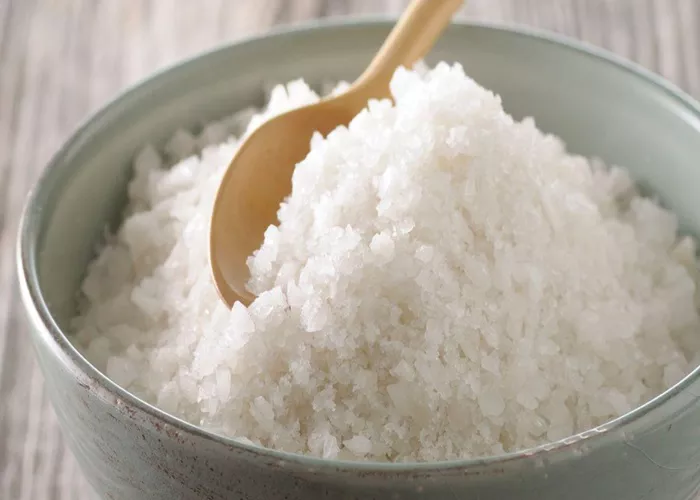Salt, also known as sodium chloride, is a chemical compound composed of sodium and chlorine. It enhances flavor and acts as a preservative in food. Naturally found in fruits, vegetables, and meat, salt is also added during food processing. However, excessive salt intake can cause numerous health problems, such as high blood pressure, heart disease, and kidney disease. During exercise, maintaining the right balance of salt in your diet is crucial for optimal health and performance.
Understanding Salt and Its Effects
Role of Salt in the Body
Salt is essential for maintaining fluid balance in the body. It helps regulate blood pressure and nerve and muscle function. However, too much salt can lead to fluid retention, increasing blood pressure and putting strain on the heart and kidneys.
Health Risks of Excessive Salt Intake
High Blood Pressure: One of the primary risks associated with excessive salt intake is high blood pressure. High blood pressure can damage blood vessels, increasing the risk of heart attacks and strokes.
Heart Disease: Long-term high salt consumption can contribute to the development of heart disease.
Kidney Problems: Excessive salt intake can strain the kidneys, leading to kidney disease or failure in severe cases.
Stroke: High blood pressure caused by too much salt increases the risk of stroke.
The Importance of Reducing Salt During Exercise
During exercise, our bodies sweat to regulate temperature and remove excess heat. Sweating leads to the loss of water and electrolytes, including sodium. While it’s important to replenish these losses, doing so with high-salt foods or beverages can be counterproductive.
Maintaining Fluid Balance: Drinking plenty of water or sports drinks with the right balance of electrolytes helps maintain fluid balance. High-salt foods and drinks can lead to dehydration and disrupt fluid balance, affecting performance and recovery.
Optimal Muscle Function: Sodium is crucial for muscle contraction and relaxation. However, too much salt can interfere with muscle function, leading to fatigue and reduced performance.
Heart Health: Exercise is known to improve heart health. High salt intake during exercise can negate these benefits, increasing the risk of heart problems.
Practical Tips for Reducing Salt Intake During Exercise
Choose Low-Salt Foods: Opt for natural, unprocessed foods that are low in salt. Avoid processed foods, such as packaged snacks, fast food, and canned goods, which often contain high levels of sodium.
Prepare Meals at Home: Cooking at home gives you control over the amount of salt used. Use herbs, spices, and lemon juice to enhance flavor without adding salt.
Read Food Labels: Check the sodium content of foods before purchasing them. Aim for foods with low sodium levels, especially if you’re exercising regularly.
Use Salt Sparingly: When cooking or seasoning food, use salt sparingly. Remember that a little salt goes a long way, and you can always add more later if needed.
Avoid Salty Snacks: Salty snacks, such as chips, pretzels, and nuts, are high in sodium. Opt for healthier snacks, such as fresh fruit, vegetables, or yogurt, which are low in salt.
Use Salt Substitutes: If you crave the taste of salt, consider using salt substitutes that contain potassium chloride instead of sodium chloride. However, consult your doctor before using salt substitutes, especially if you have kidney problems or are taking certain medications.
Monitor Your Intake: Keep a food diary to track your salt intake. This can help you identify high-salt foods and make adjustments to your diet.
Benefits of Reducing Salt Intake
Improved Heart Health: Lowering salt intake can significantly reduce blood pressure, lowering the risk of heart attacks and strokes. A healthier heart means better exercise performance and faster recovery.
Better Weight Management: High-salt foods often lead to water retention and bloating. Reducing salt intake can help you look and feel leaner, enhancing your overall fitness goals.
Reduced Risk of Chronic Diseases: Lowering salt consumption can decrease the risk of chronic diseases such as kidney disease and osteoporosis. This contributes to a longer, healthier life, allowing you to enjoy exercise and other activities for years to come.
Case Studies and Research
Several studies have highlighted the benefits of reducing salt intake during exercise. For instance, one study found that people who consumed less salt had a lower risk of cardiovascular events compared to those with higher salt intake. Another study used a computer model to predict the effects of reducing salt intake by just three grams per day in the United States. The results showed a significant decrease in heart attacks, strokes, and deaths, along with substantial savings in healthcare costs.
In another research, it was observed that potassium-rich diets, such as those containing bananas, avocados, and salmon, were associated with lower blood pressure, particularly in women with high salt intake. This suggests that incorporating these foods into your diet can help mitigate the negative effects of salt.
Practical Application and Lifestyle Adjustments
Plan Your Meals: Meal prepping and planning can help you control your salt intake. Prepare low-salt meals in advance and pack them for exercise sessions.
Hydrate Wisely: Choose water or low-sodium sports drinks to stay hydrated during exercise. Avoid sugary drinks and those high in electrolytes, which can be high in sodium.
Listen to Your Body: Pay attention to how your body feels after consuming salty foods. If you experience bloating, water retention, or discomfort, it may be a sign to reduce your salt intake.
Seek Professional Advice: If you’re unsure about how much salt you should consume, consult a dietitian or nutritionist. They can provide personalized advice based on your health status, exercise routine, and dietary needs.
Conclusion
In conclusion, avoiding excessive salt in your diet during exercise is crucial for maintaining optimal health and performance. By choosing low-salt foods, preparing meals at home, reading food labels, and using salt sparingly, you can significantly reduce your sodium intake. Incorporating potassium-rich foods, staying hydrated wisely, and listening to your body’s cues can further enhance your efforts. Remember, small changes can lead to big improvements in your overall health and fitness.
Related topic:


